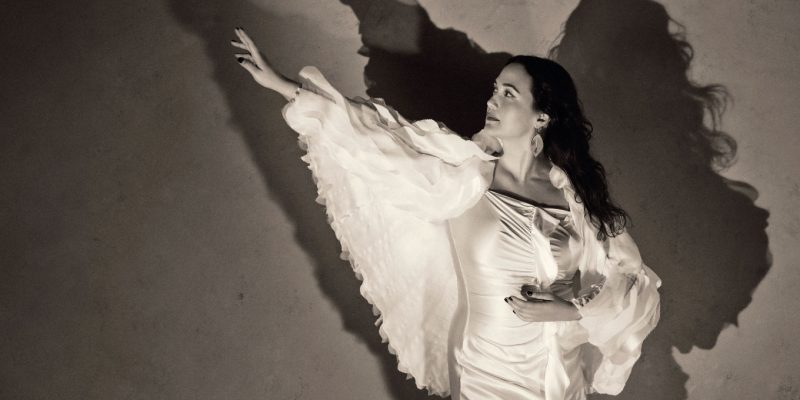Society
Friends Forever?
Long-term friendships enrich our lives, but what about the ones that blaze bright and then fizzle out?
by : Abigail Bergstrom- Jun 8th, 2022

PHOTO: IMAXTREE
A good friend of mine left my life recently. She didn’t die or anything; she just doesn’t want to be friends anymore. I can’t say why for sure. Perhaps lockdowns pushed us apart or we outgrew one another—or maybe the friendship was exactly what it was meant to be: intense and transient. As the ancient Chinese philosopher Lao Tzu wrote, “The flame that burns twice as bright burns half as long.” Amy and I sure were on fire. This friendship fling was an unrivalled cocktail of adrenaline: We would polish one another’s sentences as we discussed the book we’d just read, elicit hits of dopamine as we frantically messaged back and forth late into the night or get a mutual kick of oxytocin when she’d show up at my place, tote bag filled with groceries, insisting she cook me pasta after a particularly tough day. But on some level, perhaps, I always knew the relationship would be—like many things in life—fleeting. Yet it has left me feeling stung.
Julia Samuel is a leading psychotherapist and author whose work is largely focused on change and transience. Her forthcoming book is called Every Family Has a Story: How We Inherit Love and Loss. “There is a lot of pain, sorrow and distress from female friendships that come to an end,” she tells me. She suggests this is directly linked to narratives constructed by the media and projected onto our screens. “The culture is informed by TV shows and films where a group of women are amazingly close, they support each other through all of life’s phases and they have all the fun. But, of course, where you have people, you have complexity.”
Sophie Mort, a clinical psychologist and bestselling author of A Manual for Being Human, says that these narratives align with the “they lived happily ever after” kind of scripts. “Think of the lobsters and the penguins of the world who mate for life and the elderly couple who were childhood sweethearts and still hold hands—they have been the poster children for romance. The romantic notion of permanence is what most of us grew up with and is what many of us believe we should strive for. These ideas come from society. They shape what we think we need, but in reality, transience is not a bad thing.”
The truth is that we have different types of friendships with different types of women at different times of our lives. But if longevity is the most prized feature of platonic relationships, then anything other than a decade’s worth of nights out, in-jokes, late-night phone calls, drunken confessions and expensive city breaks seems, well, pointless.
My short-lived, intense time with Amy taught me that passing friendships should be celebrated for what they are rather than seen as some kind of failure once they fizzle out. These are the friends you make when you become a new parent and want to latch onto another mother who will also moan about their baby’s selfish resistance to sleep; or that colleague who has learned to monitor the subtle fluctuations of your mood and knows exactly when you need a Kit Kat; or perhaps it’s the woman you met on an intensive evening Spanish course with whom you find yourself drinking red wine late into the night and planning a month in Madrid together that you both know is never going to actually happen. These relationships can get deep or codependent very quickly. There’s an intrinsic lack of sustainability to them—but isn’t that part of the charm?
French poet Charles Baudelaire wrote, “Modernity is the transient, the fleeting, the contingent; it is one half of art, the other being the eternal and the immovable.” If we embrace them, transient friendships are an important half of our social lives.
But this is easier said than done—the truth is, I’m still feeling sad about my recently extinguished flame with Amy and have been left feeling confused in its smoky residue. There was no fight or dramatic end, which makes it even harder to process.
I speak to my best friend, Lydia, about it. Outside of my family, she’s the most permanent and immovable person in my life, and we’ve been inseparable since we were 13. She reminds me that a lasting relationship like ours is the perfect backdrop for wavering attachments. “Our friendship is so deep, simple, eternal,” she says. “It’s like we’re sisters. Our closeness complements and provides space and ease for more transient friendships. They’re made clearer and more defined by existing around what we have.” Lydia is definitely comfortable with fleeting friendships, so I also talk to someone who has found them more difficult.
Viola is a jewellery designer who has had such a hard time with transient friendships that she’s in therapy trying to unpack the turmoil they have created. She finds it very difficult to talk about the evanescence of these interactions, and the word “failure” rears its judgmental head again. “These friendships felt like we were two disco dancers crashing into a new world together and having all the laughs at all the parties and then a falling out over who knows what before we fuck off in different directions, crumpled, humbled and licking our wounds,” she says. “I have never thought of these friendships as transient. Perhaps referring to them as ‘transient’ rather than ‘failed’ is a good place for me to continue from.”
When I ask Viola to pinpoint what it is that makes the endings of these relationships so complicated, she says she thinks it is the burden of “forever.” “It’s [a notion] born out of Disney films, friendship bracelets, two halves of a love heart, pinky promises, BFF hashtags, gossip and matching life goals, but it often doesn’t look like that,” she says. “I rarely tread lightly when I make a new friend who I think is wonderful. This level of intensity means that the highs are brilliant and the lows are unbearable.”
This kind of approach doesn’t take into account the real complexity of human nature. “If you have this assumption that a friendship with another woman is only good if you’re constantly in contact, you tell her everything and she tells you everything, then it’s very unlikely you’ll get your needs and expectations met,” says Samuel. “Some of us want to be a particular version of ourselves with one particular woman at one particular time, and that’s the delight of having different people in our lives.”
“I rarely tread lightly when I make a new friend who I think is wonderful. This level of intensity means that the highs are brilliant and the lows are unbearable.”
There’s an appealing casualness about fleeting friendships—they don’t need as much maintenance. They’re less like a plant that needs nourishment, pruning and watering and more like a vibrant and colourful bunch of flowers that you choose for yourself and will eventually wilt and die. So why does it often feel so bad when they come to an end?
With long-term friends, our personality tends to be constant; it’s harder to deviate because they know our quirks and neuroses. I miss the version of myself I could be with Amy—the parts she stimulated and gave me access to. She brought out a confidence in me that I’d lost sight of; she made me feel more carefree, and she helped me channel the courage I needed to set up a business. She reminded me to not take life so seriously, but then—as I let my hair down and got lost in myself, swaying under the disco ball—my dancing partner exited the scene.
I decide to get in contact with another friend from whom I’ve drifted apart; I’m hoping that speaking to her about our mutual untethering will shed some light on the concept of the BFFN (best friend for now). Rebecca is a radio producer who used to live in the apartment downstairs from me with her girlfriend, Holly. When I moved into the building, I liked them both immediately. I adored listening to them cooing at their cat, Otis, or screeching with laughter as I dragged my shopping bags up the stairs. They smoked like chimneys and seemed to have two default modes: hilarious and kind. They weren’t like a lot of my friends in that we never spoke about work—the thing I most define myself by. I felt so light around them. I could be silly and say things I wouldn’t say in front of people who know me well. “You can be a new version of yourself,” says Samuel of the freedom offered by transient relationships. “You don’t have a history, and they don’t have an expectation that you’re going to be a particular way. It’s liberating. You can make a different present and future with someone who sees you in this new light.”
I moved out more than a year ago, and Rebecca seems pleased to hear from me. When I ask if we can talk about the short-lived nature of our friendship, she’s happy to get into it. “At first, we only knew each other as neighbours, saying a fleeting hello at the front door or sharing a cigarette, but after a few weeks, we developed a friendship that was pretty rare and unexpected,” she says. “There was a lot of trust—we knew we could rely on each other to help out with house- or pet-sitting or when one of us got locked out.” I laugh at a memory of myself drunkenly mounting a bush and pitifully calling out their names, nose pressed against their bedroom window. “We spent time together—having dinners, talking about our lives—and we even met each other’s friends and families. The relationship became particularly important through lockdown, and sometimes you’d be the only other human we would see in a day. I was very appreciative of you throughout that time.”
I feel nostalgic about our friendship too—having late-night chats at my place, sitting on the floor around a coffee table for candlelit dinners, laughing at Holly’s latest escapade, like the time she rescued a dog using her dressing-gown belt. And yet, when I moved out, it came to a natural end, and none of us had any expectations that it would continue. “I don’t think I ever really thought about how long the friendship was going to last, but you never really do, I suppose,” says Rebecca. “It moved on naturally because you moved out. I think the relationship would’ve been a completely different one if we weren’t living next door to each other.”
Rebecca is very positive about transient friendships. “I think we should be more accepting,” she says. “Things can be perfect for a certain time, and then it’s healthy to let go.”
In seeking out more women who’ve had positive experiences of temporary friendships, I stumble across Margot, a 40-year-old graphic designer, at a party. “Over lockdown, my neighbourhood WhatsApp group became a real lifeline,” she says. “Someone I’d never met before asked the group if anyone could print something for them, and I offered. As soon as I opened the door to this person, I felt the thrill of connection. Immediately, I realized he was a fabulous individual who worked in fashion, and having been starved of seeing friends for so long, we ended up having a meaningful conversation on my doorstep. We would go for weekly walks—I am almost twice his age, but that didn’t matter—and share our life stories. It felt like I was reminding myself of who I was when we spoke. Once the world opened up again, our walks stopped and we rarely messaged. We still live opposite each other and pass each other in the street with a quick hello. We served a purpose for each other at the time, and we have an unspoken agreement that neither of us needs that kind of intimate relationship now that we can connect with our real friends again.”
“We know from research that even a five-minute chat with the person you buy your coffee from can be an important connection,” says Samuel. “A relationship that lasts a number of days, weeks or months can be meaningful and feed your sense of self and your sense of belonging as well as expand and change your view. Longevity isn’t the be-all and end-all.”
Throughout my adult life, I’ve shared many significant moments with people who ended up being minor characters: colleagues who were my closest confidantes, wrapping their arms tightly around me as I grieved, and roommates who knew every intimate detail about my sex life and who now probably couldn’t remember my middle name. I’ve been giving these connections the back bench, treating them as substitute players who were just warming the seats for the real thing, but I’ve been wrong about them, and I’ve been restricting myself from accepting the real depth of those connections and what they offered.
Mort tells me that some humans deal in transience more than others but that “these sorts of relationships can be profound—even life changing. The ending of the connection does not negate the importance of it. And not all endings are forever.” If I can remain open to the fluctuating nature of friendship, who knows who might be around the corner, waiting to form a new temporary and life affirming bond? “Almost everything in our lives is impermanent: Humans do not live forever, emotions rise and fall, flowers bloom and wilt,” explains Mort. “We hate to admit it, but it’s true. When we are able to recognize that almost everything is transient, we can appreciate each moment in life for what it actually is. We can enjoy the bloom of each temporary bud and be delighted should someone stick around longer than we expected.”
I think about reaching out to Amy, but I decide not to because our ending was simple. Not everyone is meant to stay in our lives forever, and this doesn’t degrade the friendship, its relevance or its significance. Sometimes, special people are only meant to have cameo roles. So instead I’ll uphold the most loyal and steadfast chum of all: I choose to befriend transience.
Newsletter
Join our mailing list for the latest and biggest in fashion trends, beauty, culture and celebrity.
Read Next

Fashion
This Canadian Swimwear Brand Designed Canada’s 2024 Women’s Olympic Beach Volleyball Team Uniforms
And they're *so* good.
by : Allie Turner- Apr 24th, 2024
Fashion
The Most Iconic Looks In Met Gala History, From 1973 To Now
40 years of the night that's all about trailblazing fashion.
by : ELLE Australia- Apr 24th, 2024

Culture
ELLE Escapes: Savannah
Where to go, stay, eat and drink in “the Hostess City of the South.”
by : ELLE- Apr 15th, 2024




